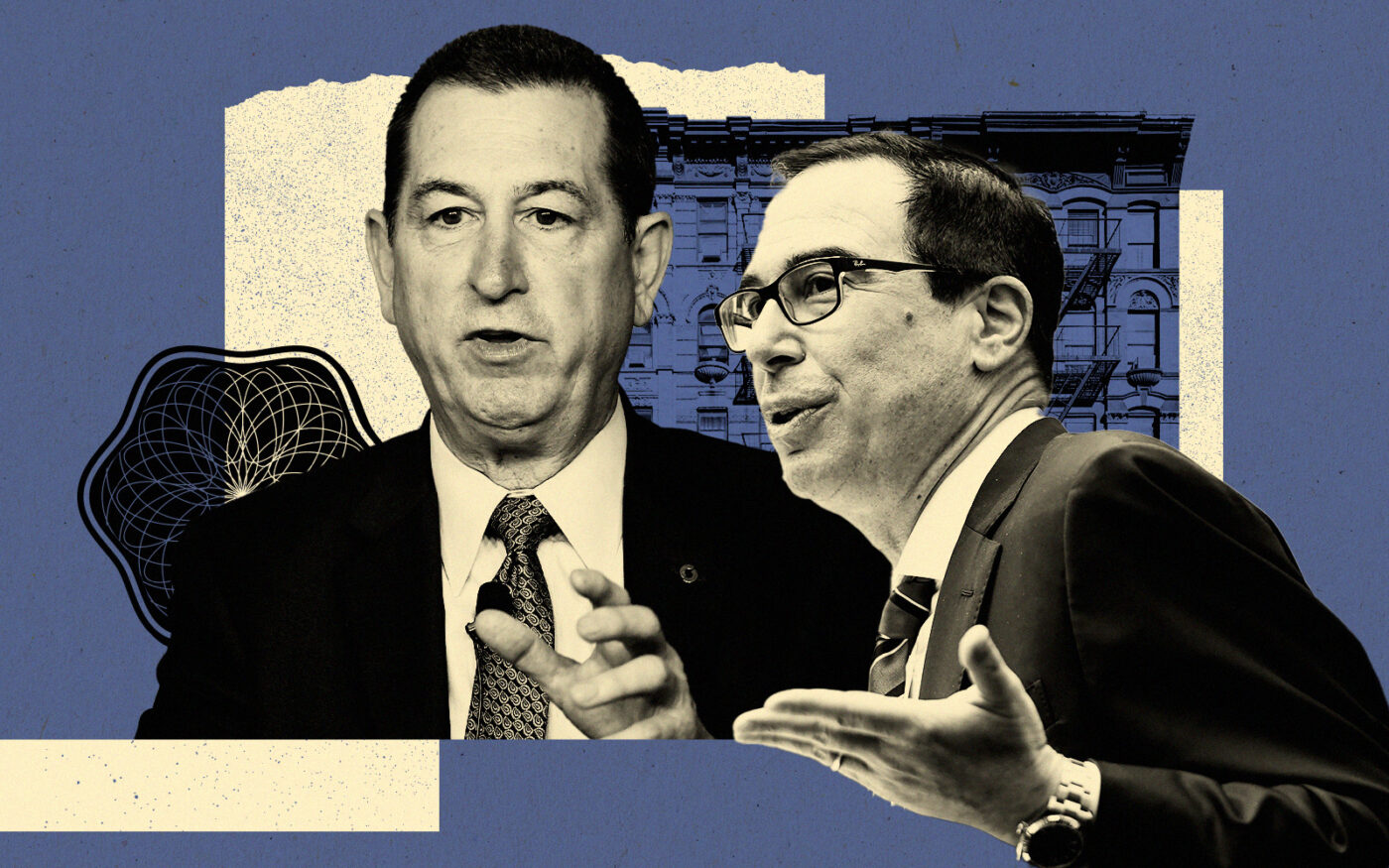The morning after a $1 billion equity investment and leadership change pulled New York Community Bank’s stock from the brink of collapse, its executives said the bank would work to shrink its commercial real estate portfolio as distress hits office and rent-stabilized buildings.
Part of that game plan is to take a harder line with troubled borrowers.
“I think the company has been relatively accommodative in the past,” Alessandro DiNello, the bank’s non-executive chairman and former CEO said on an investors call.
“The approach that we’ve taken over the last month is to start to think about how we might more aggressively manage the portfolio,” he added.
For rent-regulated borrowers — once a cash cow but now a chronic pain for NYCB — the shift will likely mean less leeway on troubled debts.
“NYCB wants to reduce their exposure to multifamily as quickly as they can,” said Peter Winter, a senior analyst at D.A. Davidson. “They won’t be as willing to work with the borrower and make loan modifications.”
The move comes after the bank disclosed internal controls issues linked to loan review and hiked loss reserves on the expectation that more distress would hit multifamily. Loans on rent-stabilized properties comprise nearly half of the bank’s $37 billion multifamily portfolio.
The $1 billion equity investment Wednesday will provide a much-needed cushion against losses. A handful of investors kicked in the money, including former Treasury Secretary Steven Mnuchin’s Liberty Strategic Capital.
Rent-stabilized properties have suffered under the revenue caps inflicted by the 2019 rent law. Owners were also whacked by rising expenses, notably debt service and insurance. Some properties are underwater, and foreclosures, including by NYCB subsidiary Flagstar, have increased.
NYCB has historically been a relationship-based lender. Its high exposure to rent-stabilized multifamily made it more likely to accommodate struggling owners of those properties.
“If you start foreclosing or charging off, you’re losing your bread and butter,” Winter said.
The bank’s acquisition of Flagstar in late 2022 and Signature’s commercial and industrial loans last year diversified its portfolio, providing more leeway to weed out bad multifamily loans.
The Community Housing Improvement Program’s Jay Martin, who represents rent-stabilized landlords, said if the bank gets aggressive it would be “a shift” from how it previously dealt with distressed borrowers.
Still, he said, workouts of rent-stabilized loans have become less common in recent years. Banks instead have opted to extend loans — a kick the can strategy lenders have also tapped to handle office-sector distress.
For NYCB borrowers with a maturity approaching, traditional lending has become largely unavailable. When Signature collapsed last March, landlords said bigger banks wouldn’t touch troubled rent-stabilized assets.
“They didn’t want anything to do with the property,” Valentina Gocjac said of one underwater building at the time. “We finally found a regional bank that, with personal guarantees, allowed us to pull a loan out.”
Those guarantees, however, mean the lender can recover money from the borrower’s personal assets if he defaults.
Agency loans are still there, Winter said, referring to government-sponsored entities. But owners refinancing in 2024 will likely face higher rates, a nonstarter for those already struggling to afford debt payments.
“My guess is defaults are going to start up significantly,” Martin said. “I think now.”
Read more



